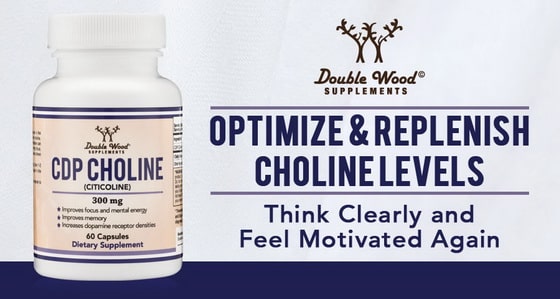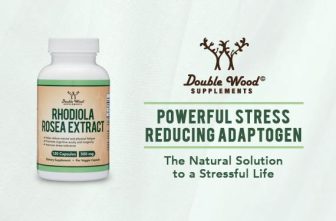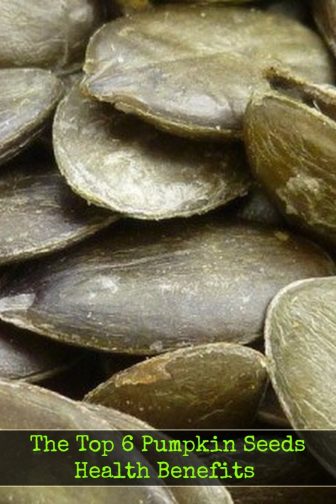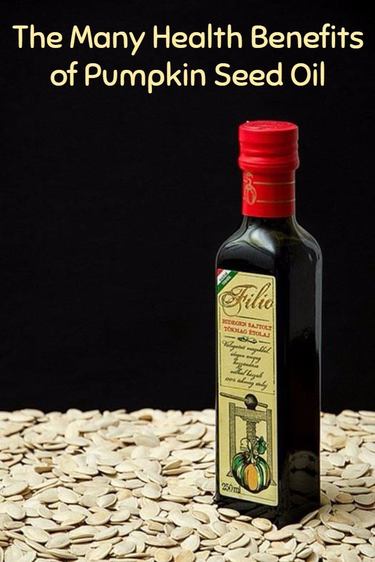Ultimate Guide to Beta-Carotene Benefits for Better Health
 Beta-carotene is the best known of the carotenoids and a powerful antioxidant for disease prevention and general good health. A good intake of beta-carotene in your diet may also help protect your face from sun damage that leads to skin aging.
Beta-carotene is the best known of the carotenoids and a powerful antioxidant for disease prevention and general good health. A good intake of beta-carotene in your diet may also help protect your face from sun damage that leads to skin aging.
Carotenoids are a family of phytonutrient pigments that occur naturally in many fruits and vegetables, particularly ones with colors like orange and yellow and in dark green leafy vegetables (where the green chlorophyll takes dominance).
Whilst there are hundreds of carotenoids, only a few are known to be significant in the American diet. Alongside beta-carotene, which is the most commonly occurring, there is also alpha-carotene, gamma-carotene, beta-cryptoxanthin, lycopene, lutein and zeaxanthin.
Beta-carotene is also one of roughly fifty carotenoids, known as pro-vitamin A compounds, that the body can convert into the active form of vitamin A – retinol. Alpha-carotene, gamma-carotene and beta-cryptoxanthin can also be converted, but it seems not particularly well and are of far more value for their antioxidant properties.
Lycopene, lutein and zeaxanthin cannot be converted into vitamin A, but have many other important health functions, such as decreasing the risk of certain cancers and heart disease and protective properties for healthy eyes.
Beta-Carotene into Vitamin A
Vitamin A is vital for protection from infection, a strong immune system, normal growth and development and healthy eyes and skin. We get vitamin A from animal derived sources such as liver, meats, eggs and dairy products.
 Magnesium L Threonate (Magtein) | Highly Bioavailable Form for Healthy Sleep Habits and Improved Cognitive Function + Memory | 2,000 mg, 100 Capsules, Best Value
Magnesium L Threonate (Magtein) | Highly Bioavailable Form for Healthy Sleep Habits and Improved Cognitive Function + Memory | 2,000 mg, 100 Capsules, Best Value
The body can also usually convert carotenoids like beta-carotene into vitamin A when needed. It does this by basically splitting the carotenoid molecules in the intestine and then storing them ready for use as retinol, primarily in the liver.
The conversion rate however, for beta-carotene into retinol is estimated at around 12 to 1 and far higher for other pro-vitamin A carotenoids. You would need a fairly large and regular amount of beta-carotene rich vegetables and fruits to rely on plant sources alone for your vitamin A.
Beta-Carotene’s Antioxidant Power
When the body has enough vitamin A to not need to convert it, beta-carotene is an excellent antioxidant. Antioxidants protect our cells from being oxidized by damaging free radicals.
Free radicals occur when weak molecule bonds split, leaving the molecule with an unpaired electron. The unstable free radical steals an electron from the nearest stable molecule, making it a free radical and so on and so on, until something can stop the destructive chain reaction.
Antioxidants like beta-carotene neutralize free radicals by donating one of their own electrons, without becoming a free radical themselves. This process is happening inside us all the time, but if you smoke, drink alcohol, eat junk foods or are exposed to pollution in the air you breathe, your need for protective antioxidants is generally much higher.
While food sources of carotenoids like pumpkins and carrots are preferable, many of us aren’t getting that much of these in our processed modern diets. A good mixed carotenoid supplement, from a natural source like Dunaliella Salina, importantly taken with a meal containing some dietary fat, can be useful for increasing your intake if you feel your diet could use an antioxidant boost.
Beta-Carotene and Skin Aging
Getting a good amount of beta-carotene and other antioxidants in your food can greatly lessen the damage caused by free radicals in your body, lowering the chances of many diseases associated with oxidative stress, and even potentially lessening the visible signs of aging, like sagging skin and wrinkles.
This is due to the way beta-carotene accumulates in the skin and helps prevent sunburn and damage to the collagen that keeps our skin firm and healthy, as shown in this research.
Beyond a good basic moisturizer, your face will probably look better if you spend your money on more carrots, pumpkins and dark green leafy vegetables for beta-carotene, rather than those expensive face creams.
That’s probably not something the marketing men at cosmetics companies want to hear, but better nutrition will have a far greater effect on skin aging or skin conditions like acne, than the latest moisturizer marketing ploy.
Beta-Carotene and Cancer Research
Heart disease and cancer and two of the biggest killers in western societies. Can antioxidants like beta-carotene help reduce our risk of developing these diseases?
The antioxidant properties of beta-carotene can prevent free radicals from damaging cells and their DNA. Damaged DNA in a cell can cause mutations and if this is not corrected the cell can turn cancerous.
Fortunately, antioxidants like beta-carotene stop the free radical chain reaction. A good daily intake of antioxidants can potentially help prevent cells damaged by free radicals from turning into cancer.
Beta-carotene has also been shown to stimulate immune cells known as macrophages to destroy cancer cells by attaching to them and injecting them with toxins.
Additionally, carotenoids like beta-carotene help regulate proper communication between cells. Researchers theorize that poor cellular communication can lead to an overgrowth of cells which may eventually lead to cancer.
Cancer is one of the biggest killers in both America and Europe, yet it seems a good diet with the right type of foods can go a long way to preventing many types of it. You probably don’t want to go too long without topping up your body’s defenses with antioxidants like beta-carotene.
 CDP Choline (Citicoline) | Pharmaceutical Grade, Made in the USA | Improves Focus, Memory, Motivation and Mental Energy | Best Value + Free Delivery
CDP Choline (Citicoline) | Pharmaceutical Grade, Made in the USA | Improves Focus, Memory, Motivation and Mental Energy | Best Value + Free Delivery
Heart Disease Research and Beta-Carotene
Been fat-soluble, carotenoids circulate in lipoproteins along with other fats like cholesterol. Low density lipoprotein (LDL) oxidation is believed to be a primary cause of atherosclerosis (heart disease).
Beta-carotene, with its antioxidant properties, can help prevent this oxidization of LDL from taking place and leading to clogged arteries.
A number of studies suggest higher blood levels of carotenoids like beta-carotene can lead to a lessening of the risk of heart disease. Importantly, beta-carotene should come from natural sources for best results.
Supplements vs Natural Beta-Carotene
Fat soluble health nutrients and vitamins like beta-carotene, vitamin A and vitamin D and E, tend to be more suspect in terms of the man-made, synthetic versions of these vitamins been less usable to the body and perhaps, in some cases, even doing more harm than good.
Some studies have shown high intake of synthetic beta-carotene may actually increase the risk of certain cancers and heart disease, particularly if you smoke, drink alcohol or already have heart disease.
High doses of synthetic beta-carotene supplements may also lower your absorption of lutein, an important nutrient for the eyes, and potentially another powerful antioxidant – vitamin E. This has not been observed with naturally occurring beta-carotene, even at high levels.
It could all be to do with the way the synthetic vitamins are made. Synthetic beta-carotene is made of only one molecule – all-trans beta-carotene. In natural foods, beta-carotene occurs with both all-trans beta-carotene and 9-cis beta-carotene molecules.
As smart as we like to think we are, the truth is even the brightest scientists do not always fully understand all the complex interactions and co-factors that go into making a compound like beta-carotene so beneficial to the body.
It is possible that the synthetic form of beta-carotene is simply not recognized correctly in certain situations without the 9-cis beta-carotene molecules being present and may even interfere with various functions where it would normally be helpful.
Additionally, it is likely that the other carotenoids and co-factors that inevitably occur with beta-carotene, actually work synergistically with it in providing its beneficial effects.
With all of this in mind, it makes sense to get your beta-carotene naturally from foods like carrots, pumpkins, sweet potatoes, butternut squash, spinach and other dark green leafy vegetables. If you’re not getting enough of these type of foods there is another potential option. Dunaliella salina algae can have up to 100 times more natural form beta-carotene than carrots.
The beta-carotene in dunaliella salina algae is also often up to a quarter and even as high as half 9-cis form beta-carotene. This is exceptionally high in 9-cis beta-carotene molecules, which may be a more potent antioxidant than all-trans ones (while all-trans beta-carotene converts to vitamin A more easily).
It contains high levels of other beneficial carotenoids like alpha-carotene, beta-cryptoxanthin, zeaxanthin, and lutein as well. So if your not really into high beta-carotene foods, dunaliella salina algae could be a simple way to get a good carotenoid intake without too much fuss.
Smokers and Beta-Carotene
Smoking decreases both your blood concentrations and body stores of beta-carotene and other carotenoids.
This depletion may be due to the increased need for antioxidants to try to repair some of the damage being done by toxic cigarette smoke and the free radicals it generates.
Given this, a smoker trying to lessen the free radical impact of their smoking might use high doses of supplemental antioxidants.
Unfortunately, there’s been some research suggesting synthetic beta-carotene supplements in dose of 20 mg a day or higher may actually increase the risk of lung cancer in smokers, particularly those who drink alcohol as well.
Larger studies, running between 7 and 16 years, involving nearly 400,000 people in America and Europe, found no increase in the risk of lung cancer for smokers or non-smokers from natural beta-carotene and other carotenoids found in foods.
With its antioxidant properties, natural beta-carotene seems more likely to be preventative against
cancer, including lung cancer. However, the same may not be true for synthetic beta-carotene in high doses.
Beta-Carotene Recommended Daily Intake (RDA)
There is no official recommended daily allowance for beta-carotene as for many years the people that set these type of things saw it as just vitamin A precursor.
Now that more of the health benefits of beta-carotene are becoming understood, researchers, like those at the National Cancer Institute, are suggesting a daily intake of at least 6 mg (10,000 IU) of beta-carotene. The majority of people, with their low intake of natural foods, are probably getting closer to 1 mg.
The best way to increase your intake of beta-carotene and other carotenoids is to increase the amount of vegetables and fruit in your diet, particularly those in the yellow and orange color range, and dark green leafy vegetables.
Some of the best sources of beta-carotene include carrots, pumpkins, sweet potatoes, winter squash, broccoli, cantaloupe, apricots, mangoes, kale, spinach, watercress and algae like chlorella and dunaliella salina.
 Rhodiola Fights Fatigue, Enhances Mental Performance & Helps You Power Through Stress With Sustained Energy | Third Party Tested, Pharmaceutical Grade, Made in the USA, Free Delivery
Rhodiola Fights Fatigue, Enhances Mental Performance & Helps You Power Through Stress With Sustained Energy | Third Party Tested, Pharmaceutical Grade, Made in the USA, Free Delivery
While there is no toxicity associated with large amounts of natural beta-carotene foods, as the body eliminates what it doesn’t need, a slight orange tinge to the skin has been occasionally observed in people who eat a lot of beta-carotene foods regularly.
Juicing several large carrots a day for several weeks without a break could be an example. You’d be unlikely to absorb the beta-carotene from more than a couple of juiced carrots anyway, so better off mixing it up with other veggies like beetroot and celery, than juicing half a bag of carrots alone.
Research has shown that beta-carotene is not destroyed by moderate heat and steaming veggies like carrots, pumpkins, spinach and squash will release more of the nutrient.
Steaming is always a better way to cook your veggies than boiling them in water. When you boil vegetables, many of the important nutrients leach into the water and go down the drain rather than into your body. Plus steamed veggies using this method taste much better anyway.
Importantly, beta-carotene and other carotenoids are fat-soluble and require fat in the diet, preferably in the meal for proper absorption. 3 to 5 mg is suggested as a
minimum. Perhaps a tablespoon of olive oil or pumpkin seed oil with your carrots or in your salad dressing would be helpful if the meal didn’t contain other fats.
Healthy fats in our diet are very important for proper nutrition. Those on low-fat diets may be inhibiting their ability to absorb beta-carotene and other provitamin A carotenoids. Low-fat dieting is also ineffective for losing weight and can be damaging to our health for a whole range of reasons.
Beta-carotene absorption may be hampered by cigarette smoke, alcohol, birth control pills, cholesterol-lowering drugs, and other substances that interfere with normal absorption of dietary fats.
If you think you could use more beta-carotene but have trouble eating enough of the right type of foods, or think your absorption may be blocked, a natural beta-carotene supplement with other mixed carotenoids seems a far better choice than the synthetic beta-carotene in most multivitamin tablets.
Simple Steps for Getting More Beta-Carotene Benefits
Easy ways to have a higher daily intake of beta-carotene might include having steamed carrots, sweet potato or pumpkin as a side serve rather than potatoes; more green leafy salads as a base for your meal rather than pasta or rice; extra yellow and orange vegetables in a healthy stirfry; more soups and juices made with high beta-carotene foods; and carrot sticks in avocado dip for a snack instead of fattening crisps or crackers.
Aside from all the protective beta-carotene, most people will feel healthier and more energetic by simply switching their ‘white carbs’ to orange, yellow and green ones.
They look better on the plate as well, and actually, when you really take the time eating, rather than just shoveling the food down as most people do, they really do taste better too.

As an Amazon Associate I may earn from qualifying purchases at no cost to the consumer | Information presented here is for educational purposes only. The content is not intended to be a substitute for professional advice. Statements made have not been evaluated by the FDA and are not intended to diagnose, cure, treat or prevent any condition. Consult your GP before making dietary changes or taking supplements.





